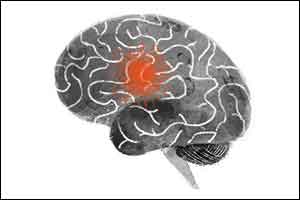- Home
- Editorial
- News
- Practice Guidelines
- Anesthesiology Guidelines
- Cancer Guidelines
- Cardiac Sciences Guidelines
- Critical Care Guidelines
- Dentistry Guidelines
- Dermatology Guidelines
- Diabetes and Endo Guidelines
- Diagnostics Guidelines
- ENT Guidelines
- Featured Practice Guidelines
- Gastroenterology Guidelines
- Geriatrics Guidelines
- Medicine Guidelines
- Nephrology Guidelines
- Neurosciences Guidelines
- Obs and Gynae Guidelines
- Ophthalmology Guidelines
- Orthopaedics Guidelines
- Paediatrics Guidelines
- Psychiatry Guidelines
- Pulmonology Guidelines
- Radiology Guidelines
- Surgery Guidelines
- Urology Guidelines
Alteplase not an appropriate treatment option for mild stroke : JAMA

Treatment with alteplase vs aspirin in patients with minor nondisabling acute ischemic stroke (mild stroke) does not increase the likelihood of favorable functional outcome at 90 days, according to a new study published in the journal JAMA.
While the gold standard for stroke care is the use of IV tissue plasminogen activator (tPA, or product name Alteplase) to dissolve clots and mechanical thrombectomy to remove clots in severe to moderate strokes, researchers and clinicians have found it more difficult to align on a standard of treatment for mild strokes.
Pooja Khatri, MD, professor of neurology at University of Cincinnati (UC) College of Medicine, and colleagues conducted the study to evaluate the efficacy and safety of alteplase in patients with NIHSS (National Institutes of Health Stroke Scale) scores of 0 to 5 whose deficits are not clearly disabling.
NIHSS assesses stroke severity based on things like the patient's level of consciousness, facial droop, and motor skills. A mild stroke is classified as 0 to 5, along with no clearly disabling deficits at the time of presentation.
Results of the study showed that use of tPA for mild stroke may not be as beneficial to the patient as was hypothesized.
"Mild stroke is the most commonly cited reason for deciding to not start tPA among patients who arrive to a hospital within the treatment window. But we also knew that after 90-day follow-ups, up to 30 percent of these patients would suffer from some kind of functional disability," says Khatri.
"In this study, we wanted to evaluate the efficacy and safety of using tPA to treat patients of ischemic stroke only presenting with minor deficits, judged as not clearly disabling," says Khatri. "In Greater Cincinnati, I think our approach has been more conservative; we weren't always treating with alteplase (tPA), while some centers have been treating them very aggressively. Previous trials excluded these patients, so individual clinicians and stroke teams had to make their own clinical judgments about treatment." Khatri engaged with leaders at stroke centers across the country to better understand the treatment approaches for mild stroke.
However, the trial ended early due to slower-than-expected enrollment. Outcomes for 313 patients were tracked and reported in this study, which does give researchers some evidence to consider when encountering mild stroke.
"Among the patients with minor, not clearly-disabling acute ischemic stroke, what we found is treatment with alteplase (compared with aspirin) did not increase the likelihood of a favorable functional outcome after 90 days," Khatri says.
She adds that the research team had hoped tPA would be beneficial in patients with a very mild neurological deficit.
"While the early termination does lead to uncertainty in the results, based on the data, it appears unlikely that the benefits of tPA extend to patients with mild stroke who do not present clearly disabling deficits," says Khatri, adding that this data provides additional information to physicians who treat stroke, and at some centers will be "practice-changing."
For more information log on to 10.1001/jama.2018.8496

Disclaimer: This site is primarily intended for healthcare professionals. Any content/information on this website does not replace the advice of medical and/or health professionals and should not be construed as medical/diagnostic advice/endorsement or prescription. Use of this site is subject to our terms of use, privacy policy, advertisement policy. © 2020 Minerva Medical Treatment Pvt Ltd